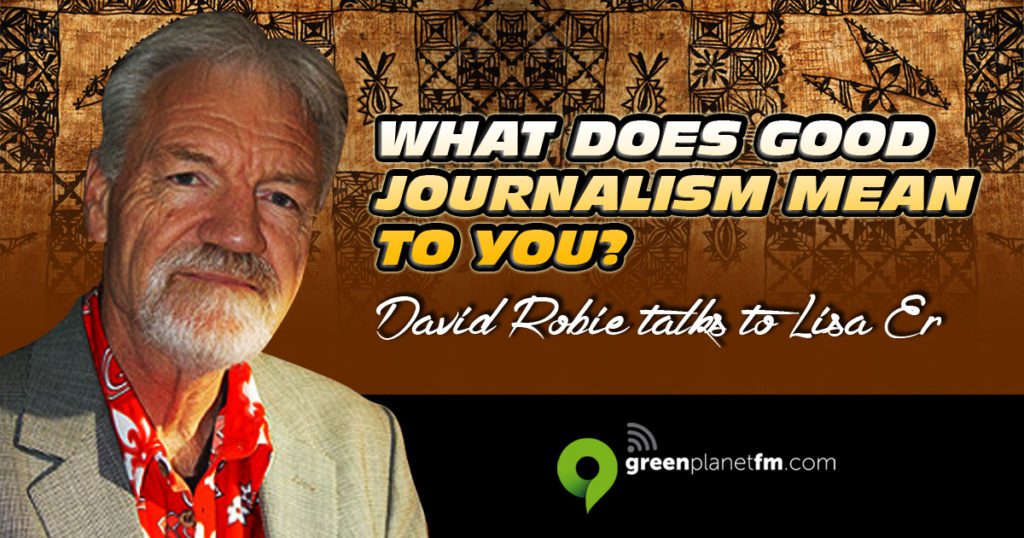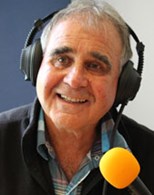
Freedom of the press describes the right to gather, publish, and distribute information and ideas without government restriction. This right encompasses freedom from censorship, but does our media really have complete freedom in New Zealand? We need to ask this question when we see the government’s response to Nicky Hager’s investigative journalism, and Channel 7 is removed from TV in spite of having half a million viewers. A journalist was recently no longer required by the Herald after writing an honest critique of the TPPA, and what happened to Campbell Live and why?
David Robie, Professor of Communication Studies and Pacific Journalism, Director of the Pacific Media Centre, journalist and author asks these questions and more.
Are journalists part of a movement that merely holds up a mirror to society with all its cynicism, or are they part of a process of empowerment and action for a better world?
Why are certain topics ignored? Perhaps the headings would not be sexy enough. Perhaps sport and tabloid news are appealing to the masses more than educated comment on important events in this country and around the world. Have the corporations bought the larger media outlets? How do economic issues affect the impartiality of the media?
In spite of all this David Robie waxes lyrical about the work of Maori TV. However he is concerned for his students as to what sort of career they can expect in New Zealand’s media.
Political crises and indigenous issues throw a spotlight on a region’s news media and its role in democracy. David Robie champions media scrutiny in the Pacific and believes more research will contribute much to the communications industry. This is an area where young journalists can go and experience stories that need to be reported, but they might be dangerous assignments.
For example in West Papua people are being arrested and detained for taking part in peaceful activities. The victims of security force harassment and violence in West Papua are predominantly those who have publicly expressed their support for self-determination or independence. We hear little about this in New Zealand, although Maori television did a story recently. The journalists were escorted by the Indonesian authorities throughout, however.
Perhaps if the world’s mainstream media reported on this it would embarrass Indonesia into modifying their behaviour somewhat.
Also “Understanding our neighbours is vitally important and researching and publishing on the media is an important goal for good governance for the region,” Professor Robie says.
Having been the journalist on the Rainbow Warrior at the time of the bombing, David has always had an interest in peace. He talks on how peace journalism can challenge war voyeurism. Is a peace keeper keeping peace peacefully when carrying a gun, for example.
Peace journalism explains conflicts and the reasons for them in some depth. It gives all parties a voice, whereas war journalism is propaganda oriented and is mainly concerned with victory.
David Robie explains, “The idea of peace journalism troubles some journalists – mostly due to a lifetime of relying on ‘conflict’ as a core news value. This is surprising, because in this era of ‘infotainment’ and super-hype in news media, this peace notion is much more about reasserting basic news values such as truth, context, fairness and depth.”
Reporters and editors have the choice to create opportunities for society to consider non violent responses to conflict. This is an example of where journalists can be a part of the solution and not part of the problem.
Professor David Robie is Director of the Pacific Media Centre (PMC) in Auckland University of Technology’s School of Communication Studies and a journalist of more than 40 years. For more than two decades he focused on covering the Asia-Pacific region. He has reported on post-colonial coups, indigenous struggles for independence and environmental and developmental issues.
David is editor of Pacific Journalism Review (PJR), the only research journal to investigate media issues in the South Pacific, Asia-Pacific, Australia and New Zealand. Through his role as at the Pacific Media Centre, he manages Pacific Media Watch, a digital research of daily dispatches about Pacific journalism and media , ethics and professionalism, and jointly publishes the high profile independentPacific Scoop news website with industry partner Scoop Media.
He has written ten books on the region’s politics and media, including Mekim Nius: South Pacific politics, media and education; Eyes of Fire, a book about the bombing of the Rainbow Warrior, and Don’t Spoil My Beautiful Face: Media, Mayhem and Human Rights in the Pacific (Little Island Press, 2014). He was awarded the 2005 PIMA Pacific Media Freedom Award and the 2015 Asia Communication Award.
Other background: http://www.aut.ac.nz/research/professors-at-aut/david-robie
Pacific Media Centre: http://www.pmc.aut.ac.nz/profile/david-robie
This interview is sponsored by The Awareness Party.
Building a Sustainable Independent News Organisation for the People of New Zealand
What is good journalism worth to you? If it is something you value then please consider pledging to the Scoop Foundation here.
The news is broken. As traditional advertising revenues dry up, New Zealand’s major news publishers are dumbing down or distorting the news to keep their businesses alive. The newly-formed Scoop Foundation for Public Interest Journalism is seeking your support for its solution to the news crisis.
You can read more about Scoop’s new approach to journalism here.
https://www.pledgeme.co.nz/projects/4175-what-is-good-journalism-worth-to-you
